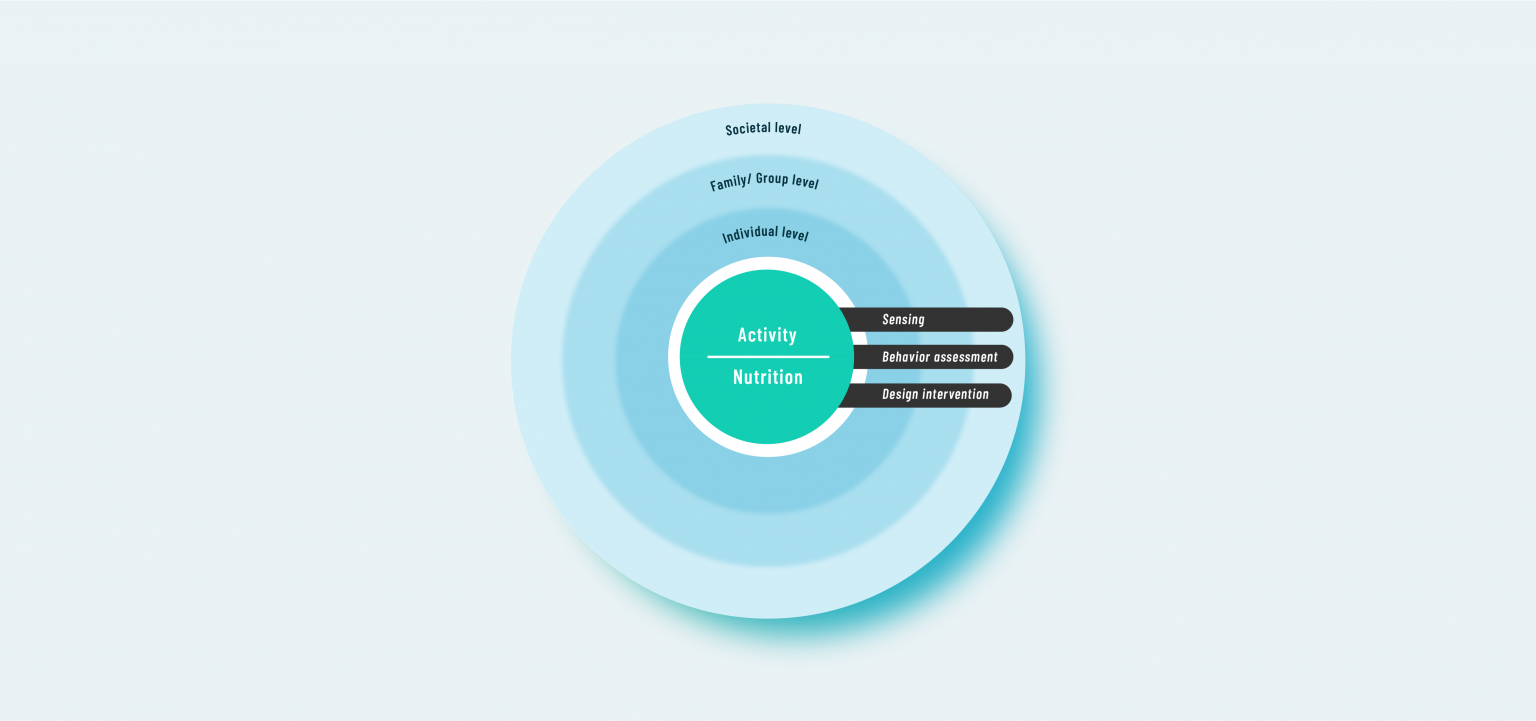Pride and Prejudice: Chronic disease prevention
Obesity is a serious threat to people’s general health, but remains a hard problem to tackle. We know that physical activity and diet are two key factors for a healthy lifestyle. But these aspects are not only difficult to modify for people on the long-term, they are also difficult to measure. The Pride and Prejudice research project combines the development of programs of design interventions with real-life monitoring and evaluation of the long-term effectiveness of these combined interventions.
Many people are unable to change their habits, as these are not just dependent on individual choices. The environments in which people live are likely to support some behaviors and discourage other ones. The most successful changes in people’s behaviour result from combined interventions in multiple environments (at home, at school, at sports club) and focus on groups rather than on individuals.
The Pride and Prejudice project aims to generate new scientific knowledge and innovative technology to improve people’s lifestyles. These include systems to monitor remotely health parameters and behaviour, new frameworks for prolonged behaviour change, and design approaches to develop interventions that encourage people to make healthy choices about what they eat and their degree of physically activity. The project combines real-life monitoring through sensors (food intake, physical activity and health parameters) with development of design interventions at different levels of the system (person, group, society), and evaluation of the long-term effectiveness of these combined interventions.
Pride and Prejudice is part of the 4TU Federation and features a unique combination of researchers from Delft University of Technology, Eindhoven University of Technology, University of Twente and Wageningen University.

- +31 (0)15 27 87896
- H.N.J.Schifferstein@tudelft.nl
-
Room C-3-300
"Let's make sense!"

Marina Bos-de Vos
- +31(0)15-2781729
- m.bos-devos@tudelft.nl
- Researchgate profile
-
Room 32-B-4-100
Present on: Mon-Thu




